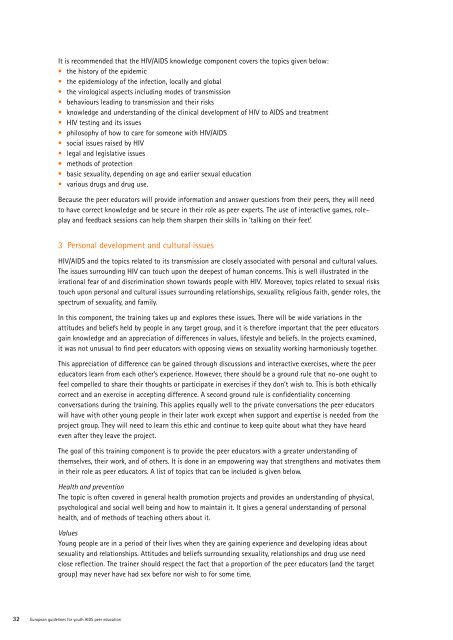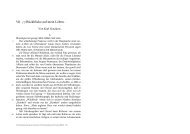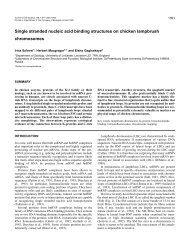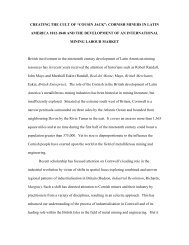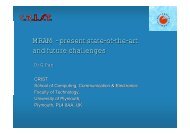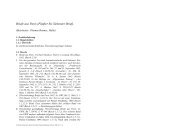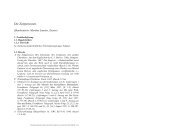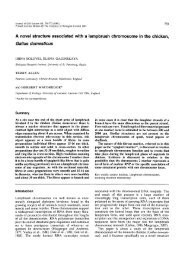European guidelines for youth AIDS peer education - University of ...
European guidelines for youth AIDS peer education - University of ...
European guidelines for youth AIDS peer education - University of ...
- No tags were found...
Create successful ePaper yourself
Turn your PDF publications into a flip-book with our unique Google optimized e-Paper software.
It is recommended that the HIV/<strong>AIDS</strong> knowledge component covers the topics given below:• the history <strong>of</strong> the epidemic• the epidemiology <strong>of</strong> the infection, locally and global• the virological aspects including modes <strong>of</strong> transmission• behaviours leading to transmission and their risks• knowledge and understanding <strong>of</strong> the clinical development <strong>of</strong> HIV to <strong>AIDS</strong> and treatment• HIV testing and its issues• philosophy <strong>of</strong> how to care <strong>for</strong> someone with HIV/<strong>AIDS</strong>• social issues raised by HIV• legal and legislative issues• methods <strong>of</strong> protection• basic sexuality, depending on age and earlier sexual <strong>education</strong>• various drugs and drug use.Because the <strong>peer</strong> educators will provide in<strong>for</strong>mation and answer questions from their <strong>peer</strong>s, they will needto have correct knowledge and be secure in their role as <strong>peer</strong> experts. The use <strong>of</strong> interactive games, roleplayand feedback sessions can help them sharpen their skills in ‘talking on their feet’.3 Personal development and cultural issuesHIV/<strong>AIDS</strong> and the topics related to its transmission are closely associated with personal and cultural values.The issues surrounding HIV can touch upon the deepest <strong>of</strong> human concerns. This is well illustrated in theirrational fear <strong>of</strong> and discrimination shown towards people with HIV. Moreover, topics related to sexual riskstouch upon personal and cultural issues surrounding relationships, sexuality, religious faith, gender roles, thespectrum <strong>of</strong> sexuality, and family.In this component, the training takes up and explores these issues. There will be wide variations in theattitudes and beliefs held by people in any target group, and it is there<strong>for</strong>e important that the <strong>peer</strong> educatorsgain knowledge and an appreciation <strong>of</strong> differences in values, lifestyle and beliefs. In the projects examined,it was not unusual to find <strong>peer</strong> educators with opposing views on sexuality working harmoniously together.This appreciation <strong>of</strong> difference can be gained through discussions and interactive exercises, where the <strong>peer</strong>educators learn from each other’s experience. However, there should be a ground rule that no-one ought t<strong>of</strong>eel compelled to share their thoughts or participate in exercises if they don’t wish to. This is both ethicallycorrect and an exercise in accepting difference. A second ground rule is confidentiality concerningconversations during the training. This applies equally well to the private conversations the <strong>peer</strong> educatorswill have with other young people in their later work except when support and expertise is needed from theproject group. They will need to learn this ethic and continue to keep quite about what they have heardeven after they leave the project.The goal <strong>of</strong> this training component is to provide the <strong>peer</strong> educators with a greater understanding <strong>of</strong>themselves, their work, and <strong>of</strong> others. It is done in an empowering way that strengthens and motivates themin their role as <strong>peer</strong> educators. A list <strong>of</strong> topics that can be included is given below.Health and preventionThe topic is <strong>of</strong>ten covered in general health promotion projects and provides an understanding <strong>of</strong> physical,psychological and social well being and how to maintain it. It gives a general understanding <strong>of</strong> personalhealth, and <strong>of</strong> methods <strong>of</strong> teaching others about it.ValuesYoung people are in a period <strong>of</strong> their lives when they are gaining experience and developing ideas aboutsexuality and relationships. Attitudes and beliefs surrounding sexuality, relationships and drug use needclose reflection. The trainer should respect the fact that a proportion <strong>of</strong> the <strong>peer</strong> educators (and the targetgroup) may never have had sex be<strong>for</strong>e nor wish to <strong>for</strong> some time.32 <strong>European</strong> <strong>guidelines</strong> <strong>for</strong> <strong>youth</strong> <strong>AIDS</strong> <strong>peer</strong> <strong>education</strong>


